Indigenous activist Yaily Castillo demands urgent action on climate change during NYC Climate Week 2022. IMAGE CREDIT: Raul de Lima / @ClimateClock.World
- The United Nations’ Intergovernmental Panel on Climate Change (IPCC) released its “Synthesis Report,” the final chapter of the Sixth Assessment Cycle, summarizing eight years of scientific research to provide a complete picture of climate change and the solutions to address it.
- The report paints a bleak picture of our planet’s future. Humanity is completely off track to keep global average temperatures 1.5°C above pre-industrial levels. At the current rate, this threshold for irreversible ecological collapse will be crossed as soon as the next decade.
- While the idea of imminent devastation may be paralyzing, the IPCC report is clear: there is still hope, but we must act now.
On March 20, the Intergovernmental Panel on Climate Change (IPCC) released its “Synthesis Report,” summarizing eight years of scientific research to provide a complete picture of climate change and the solutions available to address it. As the final chapter of the IPCC’s sixth assessment cycle, this 85-page report has been recognized as a “final warning” to act on climate change before its global impacts become irreversible.
We have highlighted some key messages from the report, including solutions we can work toward together with our Indigenous partners, and with your support.
Please read and share with others. It is imperative to amplify the IPCC’s findings and demand that governments put these solutions into practice. The time to act is now!
We’re completely off track

The world has already warmed by 1.1°C above pre-industrial levels. Even with deep reductions, current emissions will inevitably cause further warming in the next two decades, and we will cross the 1.5°C threshold for catastrophic ecological collapse as soon as the next decade.
Human activities are responsible for the current state of global warming
The burning of fossil fuels and land-use changes, especially deforestation, have caused changes that have impacted all regions of the world. However, not all humans are equally responsible. The lifestyles and consumption patterns of individuals in wealthy countries have contributed significantly more to the problem than those in less wealthy nations. The top 10% of households with the highest per capita emissions emit around 45% of all consumption-based greenhouse gas emissions.

Climate Injustice is at the Core of the Issue
Vulnerable communities that have historically contributed the least to current climate change are disproportionately affected by it. This vulnerability is exacerbated by inequality and marginalization linked to other factors such as gender, ethnicity, low incomes, disability, age, and historical and ongoing patterns of inequity such as colonialism, especially for Indigenous Peoples and Local Communities.
For instance, our Indigenous partners are already experiencing the impacts of climate change on natural water cycles and seasonality, which the IPCC report states will only worsen.
“In these times it is difficult to predict the rainy or dry season,” says Michael McGarrell, Indigenous Patamona and Geographic Information Systems Specialist for the Amerindian Peoples Association (APA), an RFUS partner in Guyana. “This has impacted our food security as we live off the land. Our farming seasons have been negatively impacted as a result of the uncertainty of the seasons. The spawning season for fish has changed, directly affecting fishing for the people.”
There are solutions
Fossil fuels are a key contributor to global warming. Phasing out their use is essential, as every bit of warming exacerbates the extreme weather events we’re witnessing. Drastic measures will be needed, including dramatically reducing or eliminating our dependence on oil, gas, and coal.
In Guyana—where we began working in 1995—oil giant Exxon plans to invest $10 billion in a new offshore project, the largest in Latin America. At the same time, Hess—a company actively drilling for oil off of the country’s coast—purchased $750 million worth of carbon credits from the Guyanese government in an effort to “offset” their environmental impact. A major problem with this is Indigenous peoples, whose lands correspond with the sale, were not consulted. Our Indigenous partners in Guyana are denouncing their exclusion from these negotiations, a violation of Free, Prior, and Informed Consent (FPIC), and they are advocating to put safeguards in place that both honor FPIC and avoid these forms of greenwashing.
Meanwhile, Harvard, Princeton, and Cornell are among the latest universities to divest from fossil fuels, following widespread student-led lawsuits, joining a $40.51 trillion movement with thousands of major institutions and individuals who have likewise taken this essential step in protecting our shared future.
By revoking the social and financial power of these companies and phasing out fossil fuels quickly, we can make a noticeable impact within just 20 years.
We must stop deforestation while respecting the rights of Indigenous Peoples and Local Communities
Forests play a critical role in regulating the Earth’s climate, not only by storing carbon dioxide and releasing oxygen, but also by supporting human well-being. Deforestation—driven primarily by human activities such as agriculture, logging, and mining—is one of the major sources of greenhouse gas emissions.

The IPCC report emphasizes that protecting and restoring forests is a key strategy to combat climate change. Sustainable forest management practices are crucial to enhance the resilience of forest ecosystems in the face of climate change impacts.
However, the IPCC warns that measures to protect and restore forests must be undertaken with careful consideration of social and environmental safeguards to avoid negative impacts on the well-being, rights, and livelihoods of local and Indigenous communities.
Indigenous peoples are the forests’ best protectors. They’ve been managing areas considered “untouched wilderness” for hundreds or thousands of years. In fact, a recent analysis found that forests managed by Indigenous peoples in the Amazon are strong carbon sinks, removing as much as four times the amount of carbon that they emit. While lands held by Indigenous peoples are curbing emissions, much of the Amazon rainforest outside of their territories has actually become a net carbon source due to significant degradation and deforestation.
Indigenous Peoples and Local Communities must be an integral part of decision-making processes to ensure their full and effective participation in the design and implementation of forest and land management actions.
Cooperation and diverse knowledge are key
Inclusive decision-making, meaningful participation and recognition of the rights and ancestral knowledge of Indigenous peoples are essential in developing climate-resilient solutions across forests and other ecosystems.
Rainforest Foundation US has worked closely with and in support of our Indigenous partners in Central and South America to secure their rights for over three decades. It’s one of the founding tenets of the organization, understanding that respecting and upholding the rights of the original stewards of the world’s rainforests is the most effective way to protect them, and that inclusion of Indigenous peoples in the discussions and negotiations impacting their territories is crucial to bringing about meaningful change.
We’ve received a “final warning” from scientists around the world that massive changes and collective action are critical to ensuring our survival. Please help us amplify this message, and consider joining our mailing list to receive updates on environmental topics like these and others.








